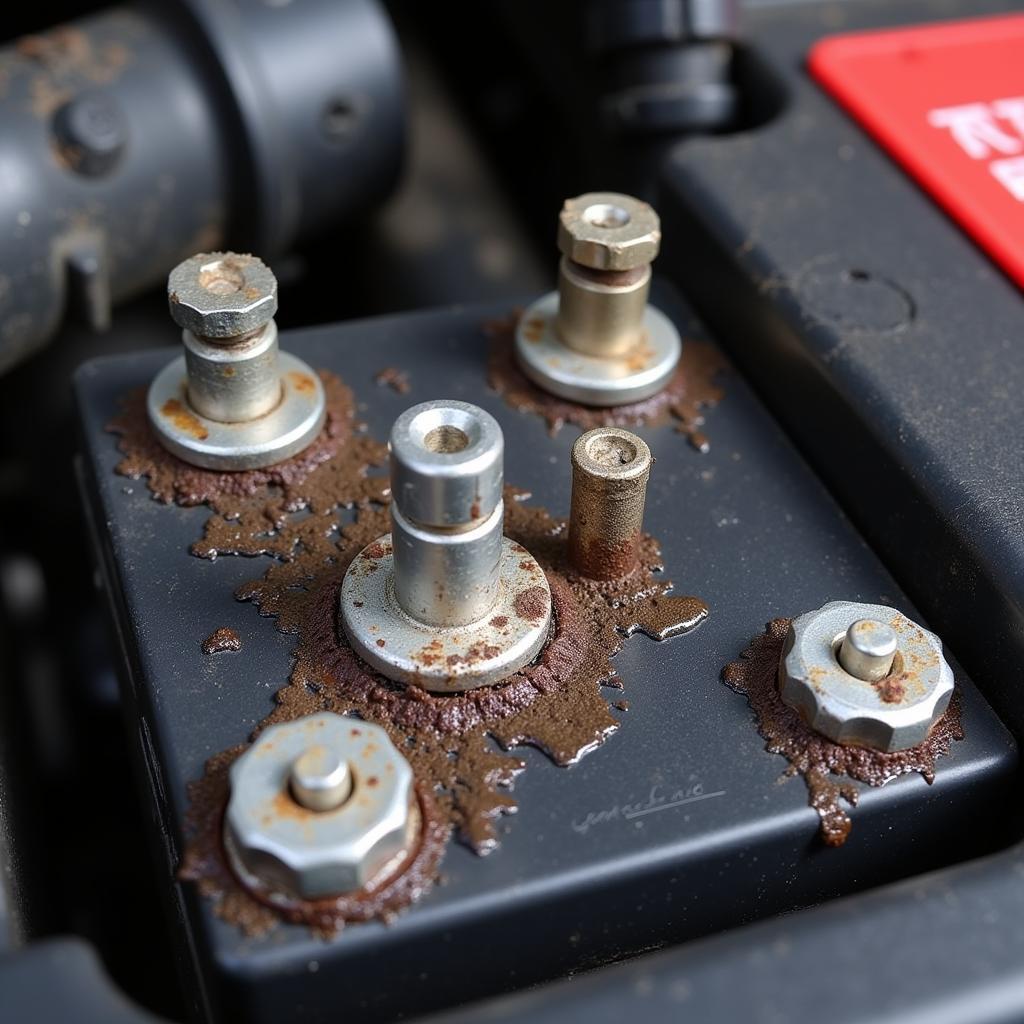“Flash brake early to warn the tailgater” is a commonly debated tactic among drivers. Is it an effective way to create distance between your car and the one behind you, or a reckless maneuver that could lead to an accident? This article dives into the pros and cons of this controversial driving practice, examining its legality and offering safer alternatives for handling tailgaters.
Understanding the Risks: Why Flash Braking Can Be Dangerous
While the intention behind a quick flash of the brake lights might be to signal the tailgater to back off, this action can be perceived as aggressive and unexpected, potentially leading to a rear-end collision. Here’s why:
- Misinterpretation: A sudden flash of brake lights typically indicates an immediate hazard. The tailgater, caught off guard, might slam on their brakes without correctly assessing the situation, increasing the risk of an accident, especially if they are distracted or following too closely.
- Chain Reaction: If the tailgater’s abrupt braking causes a chain reaction with vehicles further back, the situation can escalate quickly, potentially involving multiple cars and leading to a pileup.
- Road Rage: Flash braking can be misconstrued as a hostile act, provoking anger in the tailgater and escalating the situation into a road rage incident.
The Legality of Flash Braking: It’s More Complicated Than You Think
While no law explicitly prohibits flash braking to warn tailgaters, its legal implications often hinge on the specific circumstances and the interpretation of broader traffic laws.
- Reckless Driving: In most states, driving in a manner that disregards the safety of others can be considered reckless driving. If flash braking leads to an accident, you could be held liable for causing it.
- Following Distance: Many states have laws mandating a safe following distance between vehicles. If you brake suddenly without a clear and present danger and the tailgater hits you, the fault might lie with you for not maintaining a safe distance.
Safer Alternatives to Flash Braking: How to Handle Tailgaters Responsibly
Instead of resorting to potentially dangerous tactics like flash braking, prioritize safety by employing these preventative measures and defensive driving techniques:
- Maintain a Safe Following Distance: The golden rule is the “3-second rule,” ensuring you have enough time to react if the car in front brakes suddenly.
- Move Over If Possible: If it’s safe to do so, switch lanes and allow the tailgater to pass. It’s not worth engaging in a dangerous situation.
- Reduce Speed Gradually: Slow down gradually to encourage the tailgater to pass or increase their following distance.
- Avoid Distractions: Stay focused on the road and be prepared to react to any sudden movements from the vehicle behind you.
- Signal Your Intentions Early: Provide ample warning when changing lanes or turning to give the tailgater time to adjust their speed and positioning.
When to Involve the Authorities: Recognizing Aggressive Driving
If a tailgater’s behavior escalates beyond simply following too closely, it’s crucial to prioritize your safety and involve the authorities. Signs of aggressive driving include:
- Excessive Speeding
- Unsafe Lane Changes
- Tailgating Combined with Honking or Flashing Headlights
- Making Verbal Threats or Rude Gestures
In such situations, avoid engaging with the aggressive driver. If possible, safely pull over and contact law enforcement to report the incident.
Expert Insight
“As an automotive electrical engineer specializing in remote diagnostics, I see the aftermath of avoidable accidents all too often. Many drivers underestimate the dangers of aggressive driving, including tailgating and reacting poorly to it. Remember, safety should always be your priority. Utilize defensive driving techniques and focus on de-escalating potentially dangerous situations rather than engaging in risky maneuvers,” advises Sarah Thompson, a senior automotive electrical engineer at a leading car manufacturer.
Conclusion: Prioritize Safety Over Sending a Message
While the frustration of being tailgated is understandable, resorting to flash braking can create a more dangerous situation for everyone involved. Instead, focus on proactive and preventative measures to deter tailgaters and maintain a safe driving environment for yourself and those sharing the road. Remember, defensive driving is about anticipating potential hazards and reacting responsibly to ensure the safety of everyone on the road.
FAQ
- Is flash braking illegal? While not explicitly illegal in most places, it can be considered reckless driving if it contributes to an accident.
- What should I do if someone is tailgating me? Reduce your speed gradually, move over if possible, and avoid engaging in any risky maneuvers.
- When should I call the police about a tailgater? If the driver exhibits aggressive behavior beyond simply following too closely, such as excessive speeding or making threats, contact the authorities.
- How can I prevent being tailgated? Maintain a safe following distance, signal your intentions early, and stay aware of your surroundings.
- Is it ever okay to flash my brake lights at a tailgater? No, it’s generally not recommended as it can be misconstrued and lead to a more dangerous situation.

